Middle East
Top UK barrister: Israel is carrying out ‘destruction of humanity’ in Gaza | Israel-Palestine conflict News
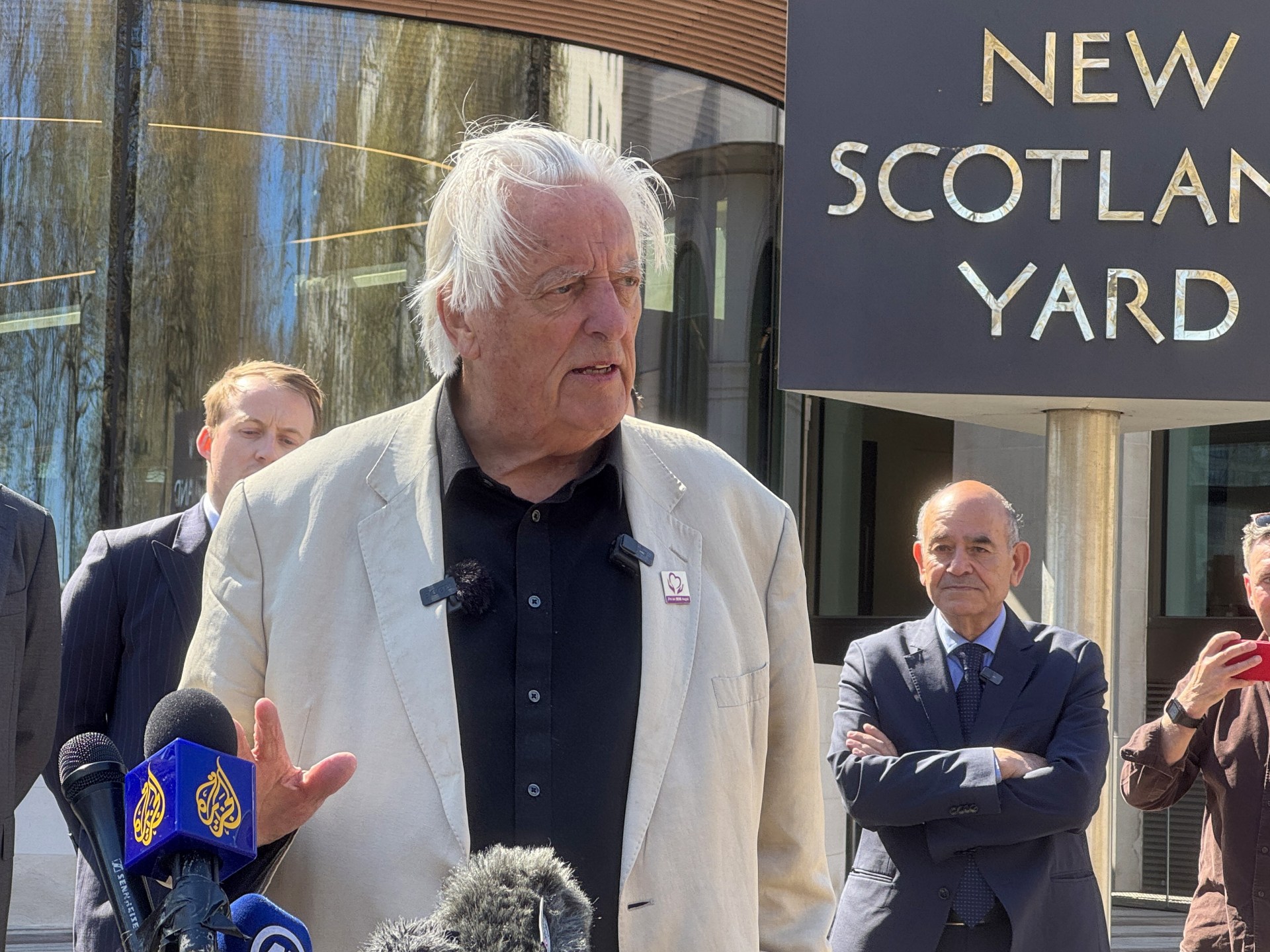
London, United Kingdom – Ten British citizens, including dual nationals, who have served in the Israeli army are being accused of war crimes in Gaza.
They are suspected of acts such as “murder, extermination, attacking civilians, and deportation or forcible transfer of population”, according to the Palestine-based Palestinian Centre for Human Rights and the UK-based Public Interest Law Centre, which last week submitted a 240-page report to the Metropolitan Police’s War Crimes Unit.
Michael Mansfield, 83, a leading English barrister who has worked on several high-profile cases throughout his career and is dubbed “the king” of human rights work, was among those who handed over the dossier that took a team of lawyers and researchers in Britain and The Hague six months to compile.
Dozens of other barristers, lawyers, researchers and human rights practitioners have signed a letter of support, urging the Met’s war crimes team to investigate the complaints.
Due to legal reasons, neither the names of the suspects, some of whom worked at the officer level, nor the report in full are being made public. Alleged war crimes from October 7, 2023, to May 31 are documented in the file, which is based on open-source material and witness testimonies.
Al Jazeera interviewed Mansfield about the landmark case, his views on Israel’s genocide against Palestinians in Gaza and why he believes legal efforts against those involved in the onslaught remain important, even as critical rulings are ignored by those in power and mass killings continue unabated.
Al Jazeera: What can you tell us about the case?
Michael Mansfield: The reason I can’t talk about the detail of it is perhaps obvious: … The people [accused] would immediately know who they were.
If a UK national commits any serious crime abroad, … you are liable to be and are investigated, arrested, charged and tried here in the United Kingdom. This is nothing out of the ordinary in that sense.
The out-of-the-ordinary bit, of course, is that it is linked to war crimes and crimes against humanity, which are international crimes.
The United Kingdom can obviously investigate themselves, or the International Criminal Court can investigate and charge and so forth.
Nobody can be unaware of the extent of the devastation, particularly in Gaza, although that’s not the only place in the world where such things are happening. And in relation to those matters, the public are asking, “What are we doing about it? What can we do about it?”
The international institutions of justice and conventions on human rights were established just after the Second World War in order to prevent this happening, if at all possible, by intervening.
[But] the United Nations’s ability to intervene has been emasculated by the major nations – Russia and America nearly always opposing each other. On top of that, the United Kingdom sitting on the fence and abstaining on most of these issues.
Slowly but surely, all the principles to do with the rule of law and rules-based democracy have been, essentially, denuded from practicality.
The court finds it very difficult to do anything because the countries [allegedly behind war crimes] are seemingly immune. They don’t mind what the international courts may think – either the International Criminal Court [or the] International Court of Justice.
Al Jazeera: As most monitors and observers are unable to enter Gaza presently due to the Israeli siege, how did the researchers and lawyers behind the report identify those accused?
Mansfield: Linking the individual [to the alleged crimes] is the problem. You’ve got to be able to provide investigators with at least enough evidence for them to say this is worth investigating.
They might say, “We can’t do this. It’s too difficult.” Then they might hand it over to the International Criminal Court, which has more resources.
There’s something called the Berkeley Protocol, which is focused on how you would gather evidence from publicly available sources.
Publicly available sources could be Al Jazeera [footage]. It could be somebody doing a selfie on their own phone.
The research has already been done to ensure that the material on these 10 is sufficient for the police to take a decision whether they can do more or not.
Al Jazeera: This month, Hungary withdrew from the International Criminal Court, which has issued an arrest warrant for Benjamin Netanyahu, ahead of a visit by the Israeli premier. If the global institutions that are meant to uphold human rights laws are under threat, decisions are sidestepped, and massacres continue in places like Gaza, what impact can legal efforts like yours have?
Mansfield: I think they do make a difference for those of us who care.
I mean, they don’t make a difference to the perpetrators. They never have. And that’s why they had the Nuremberg trials at the end of the Second World War.
As a lawyer, I can’t just sit back and say I’ve wasted 55 years of my career. I’ve got to be able to say I have strived hard to get a situation in which people are made accountable.
The law has been unable to deliver. The law is there, the institutions are there, but until governments … start paying respect to the rule of law and not ignoring it, there are lots of different ways in which people can be made accountable. As lawyers and as thinking members of the public, we have to be at the ready to get the authorities to actually do their job because if we don’t, no one else will, and it’ll just get worse.
The basic freedoms you and I enjoy when we can – freedom of association, movement, speech and so on – they’re not divisible. What I mean by that is you might live on the other side of the world, but if it’s your rights being attacked in this way, it’s me as well. Make no mistake, when it’s happening there, it could be you next.
That sort of approach to human rights is not a sort of woke topic that just a few liberal lawyers think of. It’s been fought hard for by other people. Lawyers in the past have fought very hard to set it all up.
Al Jazeera: Do you classify what’s happening in Gaza as a genocide?
I do, yes, no question.
In this particular instance, if you’re attacked personally in the domestic sense or in any other, you’re entitled to defend yourself but only up to a point.
If you’re attacked with somebody holding a wooden spoon, you can’t use a machinegun to kill them. … This has gone far beyond self-defence.
Of course, they [aggressors, in this case Israel] will always justify it and say that it’s self-defence, but you only have to see what they’ve done.
A lot of the victims are women and babies and children and doctors and journalists. … They are protected individuals under the law. If they’re not combatants, they’re not to be annihilated in this way.
In my view, it’s clearly a genocide because they’ve [Israeli officials] made it very clear in various statements. They’re talking about a bigger Israel. There’s a political ambition that lies behind the whole thing, not for all, you know, members of the [Israeli military] and so on, but I think a sizeable proportion.
[They] obviously are adhering to that principle that they want to see Gaza wiped off the map, and yes, they would like it reinstated as a Riviera resort of the Trump empire.
It’s gone beyond plausible.
[Note: The International Court of Justice said in January 2024 that it was plausible that Israel was committing genocide in Gaza.]
Al Jazeera: How will the world look back on this moment in history?
Mansfield: I hope it will bring about change of some kind in people’s hearts and minds.
The leaders of the world have the right to do something about it, and I think that our own prime minister [UK Premier Keir Starmer] should do more than he’s doing.
Originally, we [the UK] objected to the issue of arrest warrants. However, that was the previous [Conservative] government and when [Labour’s] Starmer was elected, he changed that. He withdrew his objections on behalf of the United Kingdom, so that was one step in the right direction.
I think we’ll look back and say, actually, thousands turn out for marches. Thousands of people are globally angry, upset and feeling hopeless, which is why keeping the law alive in the way the chief prosecutors tried to do, not just for Israel, but for other perpetrators as well, including [Russian President Vladimir] Putin and Russia and Ukraine.
We’ve got to keep the caring alive. You can’t get away from it. You can’t hide in your bedroom and think, “Oh, I didn’t start this.” No, you didn’t, but if you’re a member of the human race, I’m afraid you have a responsibility.
If I don’t spend every waking hour trying hard to keep what others set up in the first place [the rule of law], I feel I will have failed.
You can’t just back away from it and hope that it’ll blow away because, well, that’s what the politicians hope, that we’ll all give up. I think it’s [about] creating a well of public opinion, so that the politicians realise there’s nowhere to go because actually they’re not supported.
You’ve got to connect, engage and then do as much as you can. That’s all that can be expected. Once you do that, you’ll find hundreds and thousands of others doing the same, and then eventually politicians go, “Oh, right, there are votes here. We better do the right thing.”
It’s moving opinion all the time and keeping the flame alive.
Al Jazeera: How would you summarise the ongoing atrocities?
Mansfield: I would describe it as a mass assault and destruction of humanity. It doesn’t get worse than that.
Al Jazeera: You’ve worked on high-profile cases, such as representing the family of Stephen Lawrence, the Black British teenager stabbed to death in a racist attack, and the Birmingham Six, the group of Irishmen wrongfully arrested for bombings in 1974. What binds the work you’ve done together?
Mansfield: It’s the effect and impact on a community. Now the Lawrence case, as it turned out and as it was at the time, had a huge impact on a community. It represented a much bigger issue than, you know, the stabbing of Stephen Lawrence, which was horrific.
Although it wasn’t on your TV screens like Gaza and you didn’t see destruction of the kind you see in Gaza, it had a similar effect on people.
And there have been other cases like that. It’s not about whether it’s just one individual or thousands. It’s about the impact on the principle of fairness.
Note: This interview was edited for clarity and brevity.
Middle East
Deadly, sombre Good Friday as 58 people killed in Israeli attacks on Gaza | Israel-Palestine conflict News
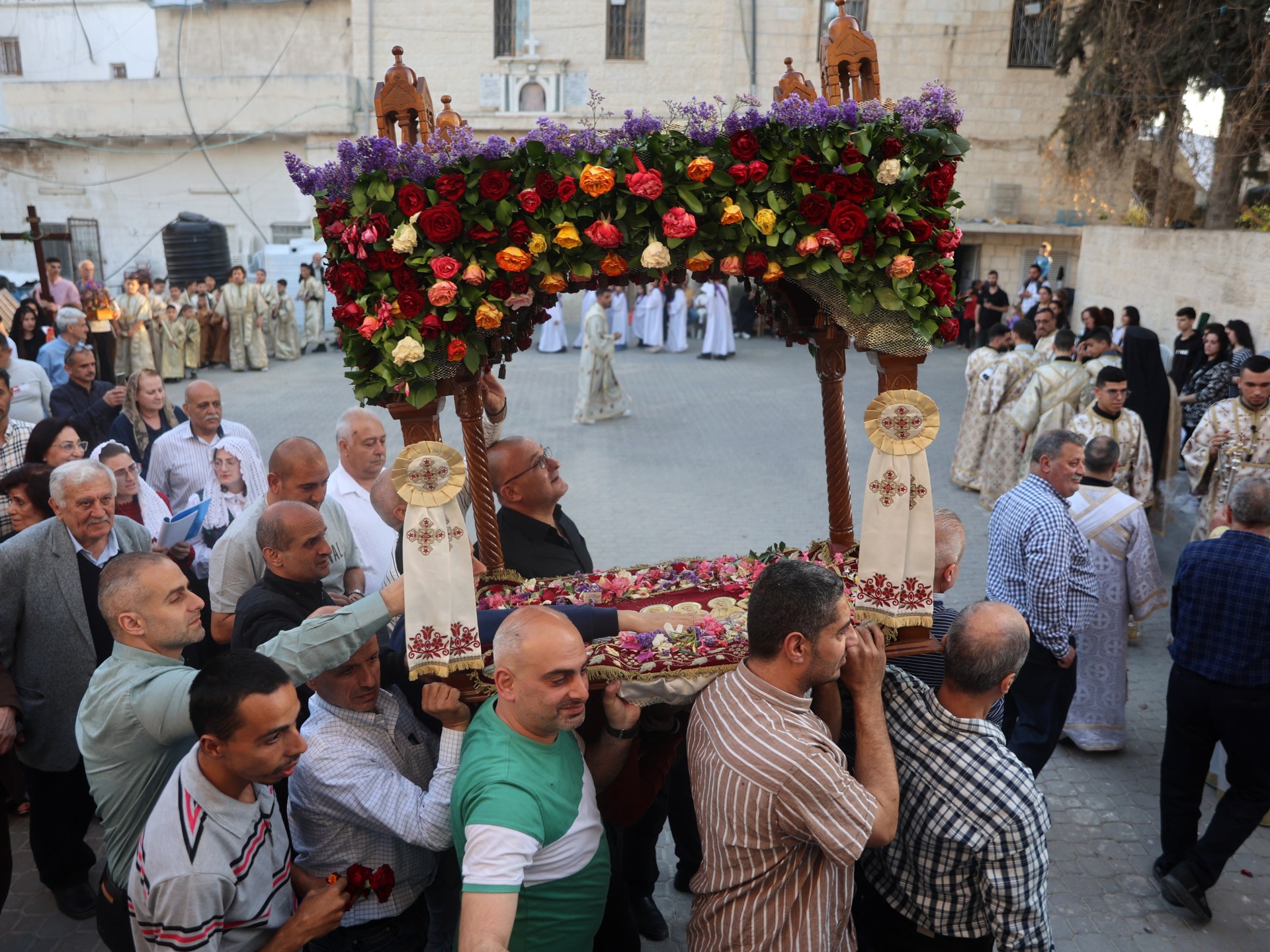
Palestinian Christians in Gaza and the occupied West Bank are holding temperate gatherings leading up to Easter.
Israeli strikes on Gaza have killed at least 58 Palestinians in one day as Christians mark Good Friday in the besieged and bombarded enclave.
More than half of the casualties were in Gaza City and northern Gaza, but deadly attacks took place across the Palestinian Strip, including in Khan Younis and Rafah in the south, medical sources told Al Jazeera on Friday.
The Israeli military said troops were operating in the Shaboura and Tal as-Sultan areas near Rafah, as well as in northern Gaza, where Israel has taken control of large areas east of Gaza City.
On Friday, Israel’s defence minister, Israel Katz, repeated that Israel intended to achieve its war aims.
“The [Israeli army] is currently working towards a decisive victory in all arenas, the release of the hostages, and the defeat of Hamas in Gaza,” he said in a statement.
Palestinian Christians in Gaza however continued to hold temperate gatherings leading up to Easter, amid the attacks.
Speaking to Al Jazeera from a local church, Ihab Ayyad said he used to gather with other congregants and visit his neighbours’ homes every year to celebrate.
“This year, we didn’t make the visits because of the total destruction everywhere, as the [Israeli] occupation forces have levelled most of the houses of my relatives and my neighbours,” Ayyad said. “A lot of my relatives and neighbours were martyred or displaced in different places. We haven’t celebrated because we feel very sad.”
Ramez al-Soury said he used to travel out of Gaza to Bethlehem or Jerusalem for the holy week.
But now, an “atmosphere of war” permeates Gaza. “The death smell is everywhere. The smell of killing and destruction is putting a lot of pressure on us,” he said.
Reporting from Gaza City, Al Jazeera’s Hani Mahmoud said the Christian community is holding onto their faith and has gathered at one of the oldest churches in the world in Gaza – not in defiance but in devotion.
“In Gaza, Good Friday is the power of faith and the quiet strength of those who still believe in peace even when the world around them is nothing but a stage filled with violence and death,” he said.
West Bank settler violence
Rituals to mark Good Friday and Easter have also been held in the occupied West Bank.
There are about 50,000 Palestinian Christians in the region. Israeli authorities, however, require them to acquire permits to travel to Jerusalem, making it difficult for many to join those celebrations.
Moreover, Israeli settlers and the military also attacked Palestinian people on their land in the town of Biddya, in the Salfit governorate in the occupied West Bank, according to Al Jazeera Arabic on Friday, tempering the celebrations.
The Palestine Red Crescent said that a Palestinian was injured in the attack.
Local sources also told Al Jazeera Arabic that dozens of settlers stormed Jabal al-Urma, a hill in the town of Beita in the Nablus governorate, under the protection of the Israeli army.
Settlers are Israeli citizens who live illegally on private Palestinian land in the occupied West Bank and East Jerusalem.
Israeli settler and military violence has soared across the West Bank – particularly in the north of the territory – since the war on Gaza began in October 2023. The United Nations has said this violence has displaced roughly 40,000 Palestinians since Israel began a new military operation in the occupied West Bank in January.
Middle East
Allies say Ghannouchi ‘unjustly’ held, as he marks 2 years in Tunisian jail | Human Rights News
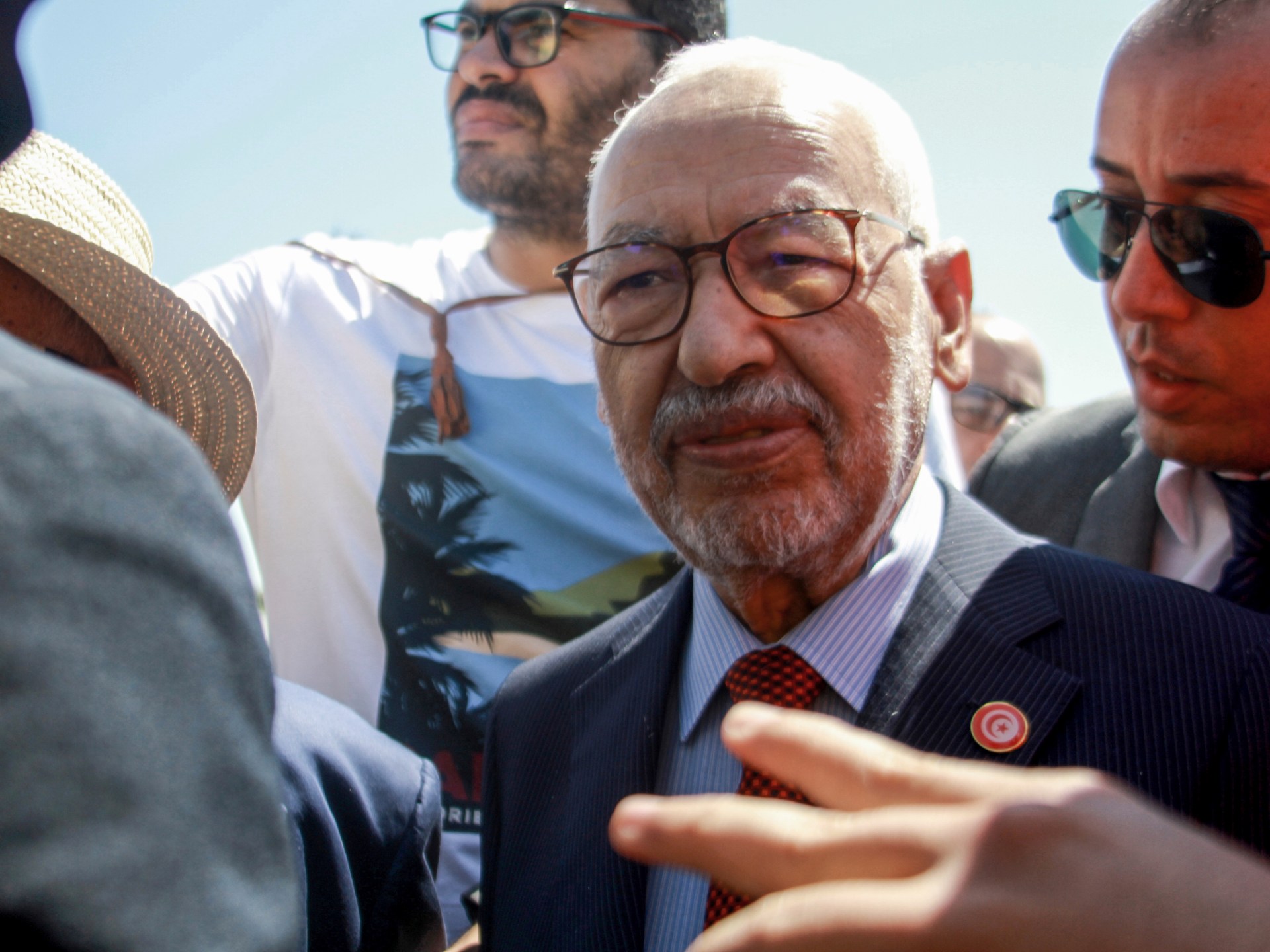
International Committee for Solidarity with Rached Ghannouchi decries ‘repressive campaign’ against Ennahdha party leader.
Marking the second anniversary of the arrest of Tunisia’s prominent opposition leader Rached Ghannouchi, an international committee formed last year to raise awareness about his imprisonment says he is being held “unjustly” and on “trumped-up charges”.
The International Committee for Solidarity with Rached Ghannouchi called for the immediate release of the imprisoned Ennahdha party leader and former speaker of Tunisia’s parliament.
In a statement on Thursday, it said that more than 15 cases have been brought against Ghannouchi, and “several unjust convictions and sentences” have been issued.
The most recent of these was a 22-year prison sentence issued in February on charges that included plotting against state security – a case “to which he has no connection”, the committee said.
Earlier this year, Ghannouchi was also sentenced to three years for accusations that his party received foreign contributions.
The 83-year-old, who has been the main rival of Tunisian President Kais Saied, was arrested in April 2023 and sentenced to one year in prison on charges of incitement.
He has been a vocal critic of Saied, and became the highest-profile figure to be arrested in the continuing consolidation of power by the president who was elected in 2019 and has overseen a wave of repression and legal reforms that have expanded his rule.
“These unjust trials and sentences take place within the context of a widespread repressive campaign led by Kais Saied’s regime, which is targeting opposition voices from all backgrounds, repressing organised action in all its forms, controlling the media and civil society, and silencing critical voices,” the committee said in its statement.
It said Saied’s government has to “exploit the judiciary as a tool for settling political scores”.
‘An era of political prisoners’
The committee’s statement comes just days after United States-based Human Rights Watch (HRW) called on the Tunisian government to halt its crackdown on opposition and free all detainees.
The rights group said arbitrary detention was being used to eliminate dissent in Tunisia amid a trial of prominent opposition figures – including Ghannouchi – on conspiracy charges.
In a report released Wednesday, HRW reinforced opposition leaders’ concern over what they call the authoritarian rule of Saied since he dissolved parliament in 2021 and began ruling by decree.
The opposition described Saied’s move as a coup. He has denied such accusations, professing he would not become a dictator but rather is trying to rescue the North African country from political chaos and rampant corruption.
The report said Tunis had turned arbitrary detention into a cornerstone of repressive policy.
“Saied’s government has returned the country to an era of political prisoners, robbing Tunisians of hard-won civil liberties,” said Bassam Khawaja, deputy Middle East and North Africa director at HRW.
Since 2023, authorities have arrested dozens of prominent political opposition figures as well as journalists, activists and lawyers in a crackdown critics say has undermined the democracy gained in the 2011 Arab Spring popular uprising.
Middle East
At least one killed by Israeli strike near Sidon in southern Lebanon | Israel attacks Lebanon News
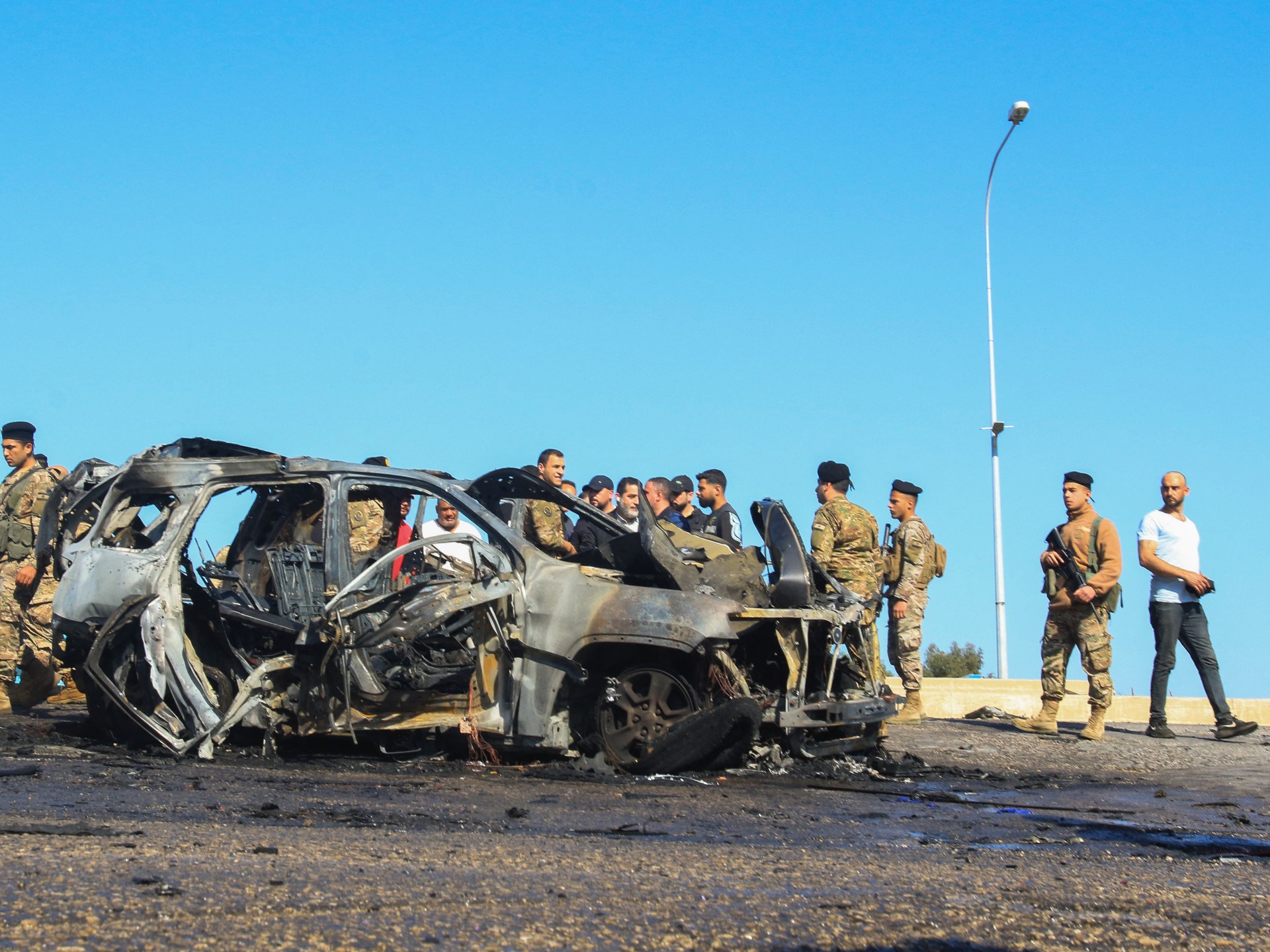
Israel has continued to conduct near-daily strikes in Lebanon despite a ceasefire with Hezbollah last November.
Lebanon’s Health Ministry has said an Israeli strike on a vehicle near the southern coastal city of Sidon killed one person, with Israel announcing that an attack in the same area had targeted a Hezbollah operative.
Despite a ceasefire last November that sought to halt more than a year of conflict between Israel and Iran-backed Hezbollah, Israel has continued to conduct near-daily strikes in Lebanon.
“The attack carried out by the Israeli enemy against a car on the Sidon-Ghaziyeh road resulted in one dead,” a Health Ministry statement said on the fourth consecutive day of Israeli attacks in the south on Friday.
An AFP journalist said the Israeli attack hit a four-wheel-drive vehicle, sending a pillar of black smoke into the sky.
At the scene of the strike, members of the security forces stood guard as a crowd gathered to look at the charred remains of the vehicle after firemen put out the blaze.
Israel’s military later said it had killed a member of Hezbollah in the area.
“Earlier today [Friday], the IAF [Israeli air force] conducted a precise strike in the area of Sidon and eliminated the Hezbollah terrorist Muhammad Jaafar Mannah Asaad Abdallah,” a military statement said.
It added that Abdallah was “responsible, among other things, for the deployment of Hezbollah’s communication systems throughout Lebanon”.
The Israeli military also said it was behind other attacks this week that it claimed had killed Hezbollah members.
Civilians killed since ceasefire
Hezbollah, significantly weakened by the war, says it is adhering to the November ceasefire, even as Israeli attacks persist.
The United Nations says at least 71 civilians have been killed by Israeli forces in Lebanon since the ceasefire.
Thameen al-Kheetan, spokesperson for the UN Office for the High Commissioner for Human Rights (OHCHR), said on Tuesday that the death toll included 14 women and nine children. He called for investigations into “each and every military action where civilians are killed”.
Under the November ceasefire, Israel was to withdraw all of its forces from south Lebanon and Hezbollah was to pull its fighters back north of Lebanon’s Litani River and dismantle any remaining military infrastructure in the south. But despite the deal, Israeli troops have remained at five south Lebanon positions that they deem “strategic”.
Lebanon’s army has been deploying in the south near the border in regions where Israeli forces pulled back. Lebanese President Joseph Aoun told Al Jazeera on Monday that the army was “dismantling tunnels and warehouses and confiscating weapons bases” south of the Litani “without any problem from Hezbollah”.
On Thursday, a senior Hezbollah official told the Reuters news agency the group is ready to hold talks with the Lebanese president about its weapons if Israel withdraws from southern Lebanon and stops its strikes.
Separately, a Hezbollah official said on Friday that the group categorically refused to discuss handing over its weapons to Lebanon’s army unless Israel withdrew completely from the south and stopped its “aggression”.
“Wouldn’t it be logical for Israel to first withdraw, then release the prisoners, then cease its aggression … and then we discuss a defensive strategy?” Wafiq Safa said in an interview with Hezbollah’s Al Nur radio station.
“The defensive strategy is about thinking about how to protect Lebanon, not preparing for the party to hand over its weapons.”
-

 Conflict Zones1 day ago
Conflict Zones1 day agoHaiti in ‘free fall’ as violence escalates, rights group warns | Armed Groups News
-

 Africa2 days ago
Africa2 days agoRobot waiter becomes a star attraction at Havana restaurant
-

 Sports2 days ago
Sports2 days agoDagestan: Why this region of Russia produces so many MMA champions
-
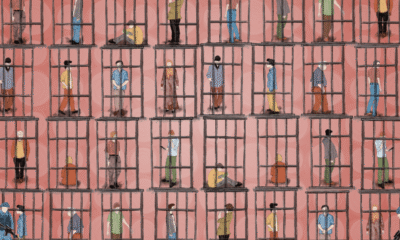
 Conflict Zones2 days ago
Conflict Zones2 days agoA nation behind bars: Why has Israel imprisoned 10,000 Palestinians? | Israel-Palestine conflict News
-
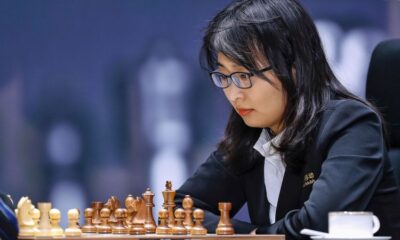
 Sports1 day ago
Sports1 day agoJu Wenjun: Chinese grandmaster makes history by winning fifth Women’s World Chess Championship
-

 Sports2 days ago
Sports2 days agoArsenal reaches first Champions League semifinal in 16 years, with Inter Milan also advancing
-
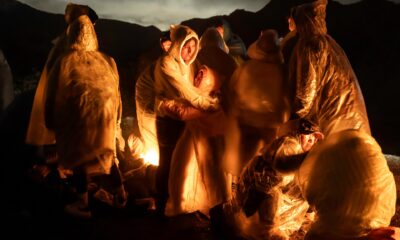
 Middle East2 days ago
Middle East2 days agoPalestinian photographer Samar Abu Elouf wins world’s top photo prize | Gaza News
-

 Sports1 day ago
Sports1 day agoAaron Boupendza: 28-year-old former MLS player dies after falling from 11th floor balcony in China




